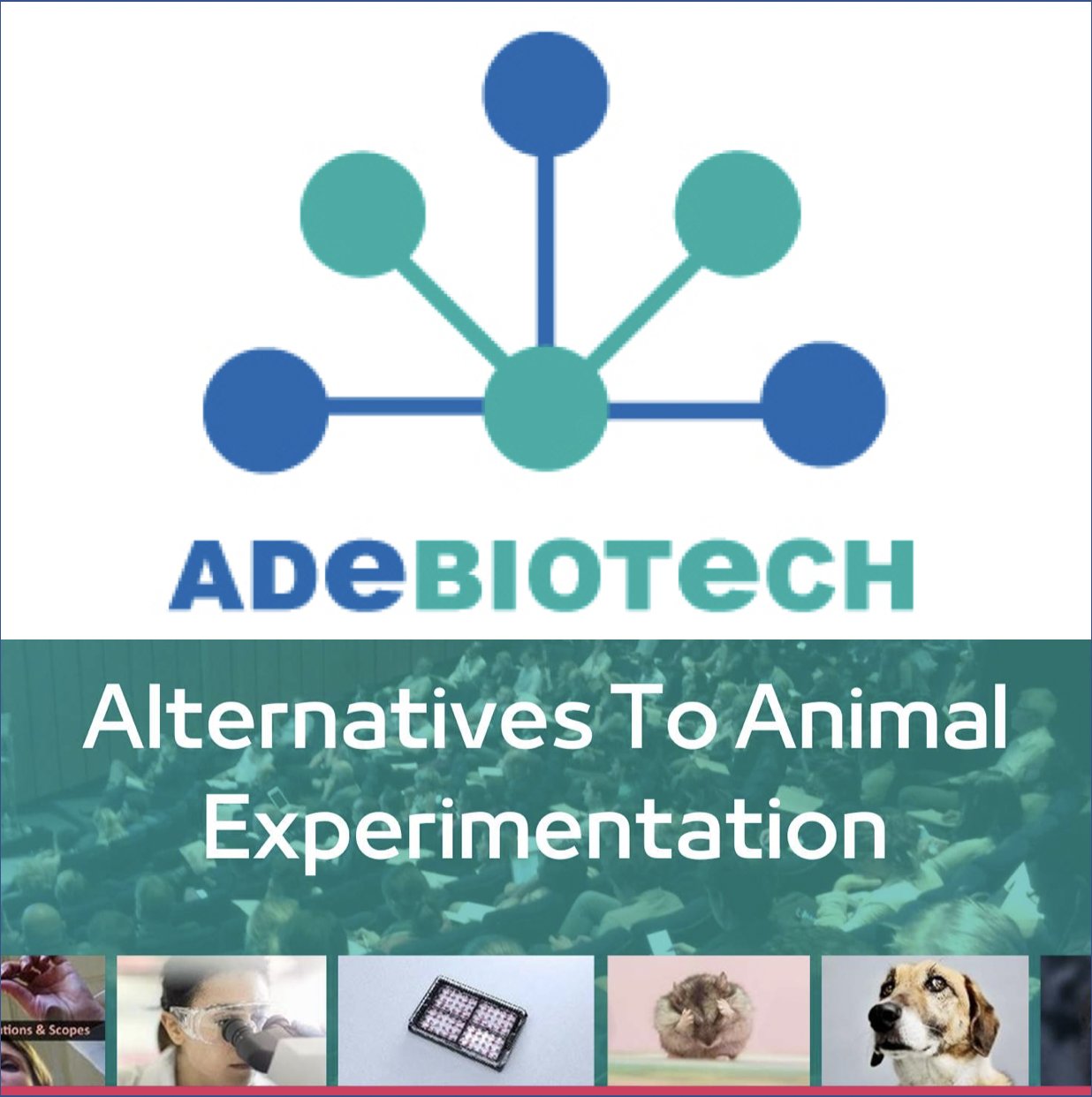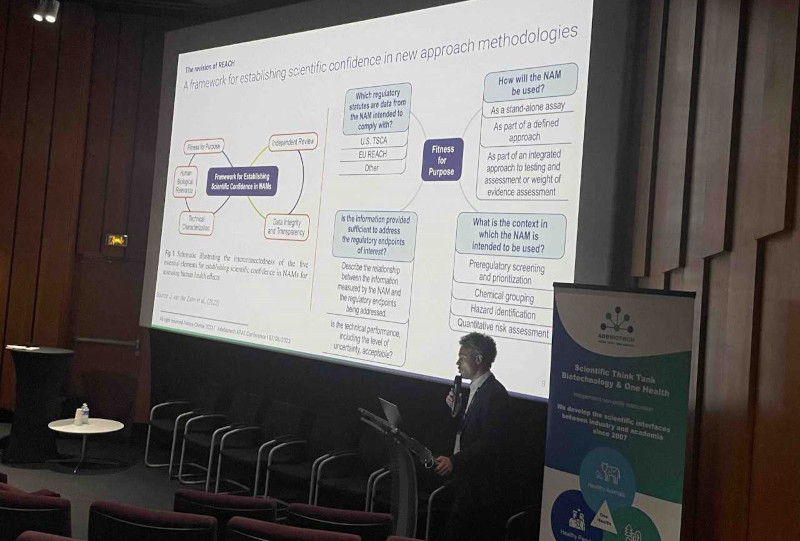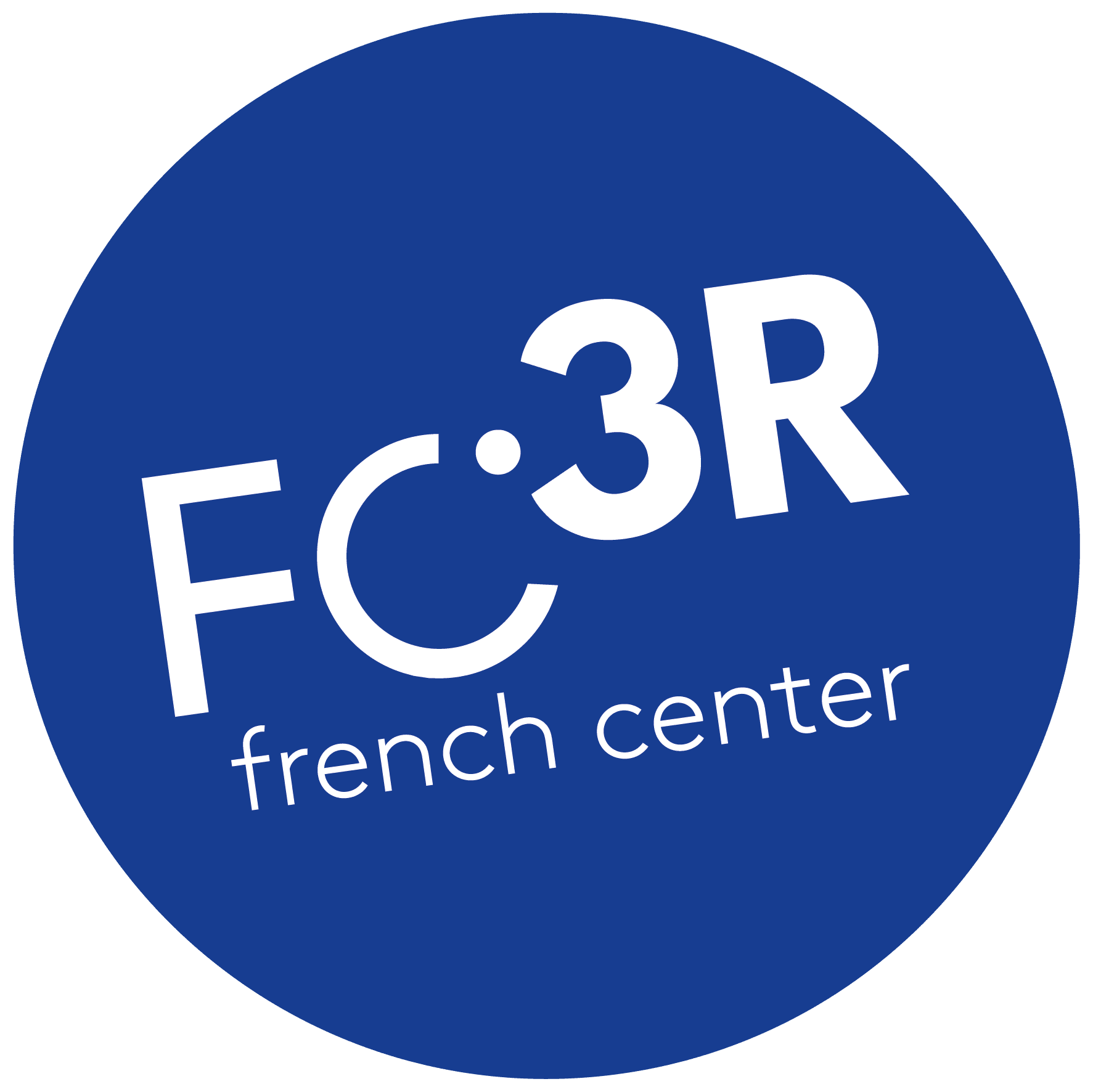

Biotechs think-tank and leader of the "One Heath" approach in France, the Adebiotech association brings together the major players of innovation (public, industrial and institutional) since 2007, to overcome scientific, technological and regulatory barriers. Discover Adebiotech
Adebiotech, an Independent Biotechnology and One Health Think Tank committed to promoting advancements in biotechnology, recently hosted the highly anticipated Alternatives to Animal Experimentation (ATAE) conference. This enlightening event gathered experts from various fields to present and discuss innovative approaches to Reduce or Replace animal testing in scientific research. Spanning over two days, the conference provided a platform for researchers, industry professionals, and policymakers to exchange ideas, present breakthroughs, and foster collaborations.
Interactive and informative workshops
The ATAE conference began with 3 engaging and interactive workshops designed to provide attendees with hands-on experiences and practical insights into alternative testing methodologies. These workshops covered a diverse range of topics and techniques: participants were able to gain firsthand experience and learn basic techniques and experiment setups through a mock drug safety assessments on “EpiIntestinal“ models (reconstructed 3D human intestinal tissue models) organized by MatTek. Another workshop led by NETRI focused on organs-on-chip architectures and explored the use of their high-throughput microfluidics platform “NeoBento”. Additionally, participants had the opportunity to engage in fun and convivial playing sessions of ALTERTOX’s “TATAbox”, an edutainment game designed to promote discussion about New Approach Methodologies (NAMs) and their validation processes. These workshops set the stage for the subsequent discussions and presentations throughout the conference, enabling attendees to engage with the subject matter on a practical level.

Bridging the gap between science and ethics
The conference commenced with a keynote speech underscoring the importance of aligning scientific progress with ethical considerations. Dr. Amy Clippinger (PETA Science Consortium International e.V., USA) delivered a riveting address on the urgent need to establish scientific confidence in new approaches.
Following the opening keynote, participants engaged in interactive sessions, focused on the current state of development and applications of various cutting-edge alternative methods, mostly developed by French biotechs. Notable panelists shared their experiences and insights on research fields adopting non-animal testing approaches:
Vibiosphen presented their immuno-competent lung organoïds models, which incorporate alveolar macrophages and dendritic cells. These models offer an innovative approach to studying lung-related diseases and immune responses, using primary cells of human origin in a matrigel-free culture.
Netri showcased their devices for developing advanced innervated organ-on-a-chip (neuro-OoC) models, in a 96-wells-plate format compatible with existing laboratory equipment to high throughput. They also presented their library of chemical compounds’ digital signatures to improve the prediction of outcomes and optimize drug discovery processes.
Harmonic Pharma, another French company, highlighted the application of computational methods, like clustering and Quantitative Structure-Activity Relationship (QSAR), to significantly reduce & replace animal testing in drug-effects prediction. They offer services for regulatory purposes (validation), and a licensed version of the software for drug discovery & other research applications.
ETAP-Lab recapitulated the history of research on complex neurological diseases and introduced “Bio-Diamond”, a new project in collaboration with NETRI, to develop brain-on-chip models for modelling Alzheimer’s, Parkinson and ALS diseases, and perform related drug testing.
WatchFrog shared their relative replacement methods (using tadpole and fish eggs) for studying endocrine disruptors, and their experience of NAMs validation at OECD
Cyprio discussed the benefits of their alginate-encapsulated spheroids and their applications in research and industry, with a special focus on their “HepatoPearls”, generated from primary hepatocyte cells.
Sanofi introduced a “Blood Brain Barrier on chip” model, featuring a transwell BBB between a neuronal cell culture (at the bottom) and a blood compartment (above) within a microfluidic device.
Galapagos France demonstrated their strong commitement to the 3Rs through several posters, and introducted “VHP4Safety”, a Virtual Human Platform for animal-free safety assessment, in which they are collaborative partners.
CTIBiotech, a French company specialized in complex skin models, shared their advancements in 3D bioprinting technology. Their models included immunized skin models, pigmented skin models with melanocytes, vascularized skin models, and even 3D bioprinted skin with growing hair. These breakthroughs offer promising avenues for studying skin-related diseases, cosmetic applications, and drug testing.
Lesaffre introduced how a fermenter, called @SHIME, can be used to study the effects of food and nutrients on the human or animal microbiota.
SYMRISE, a corporation focused on food and fragrances, introduced an in vitro method to assess the effect of a promising probiotic : polyphenol isolated from cranberries.
Other companies, such as MatTek and Epithelix, also presented significant innovations.

The ATAE conference, organized by Adebiotech, showcased the remarkable contributions of French biotech companies in the development of alternative testing methods. By fostering collaborations and promoting the adoption of alternative testing methods, the ATAE conference and French biotech companies significantly contribute to the advancement of the 3Rs in scientific research and product development.
